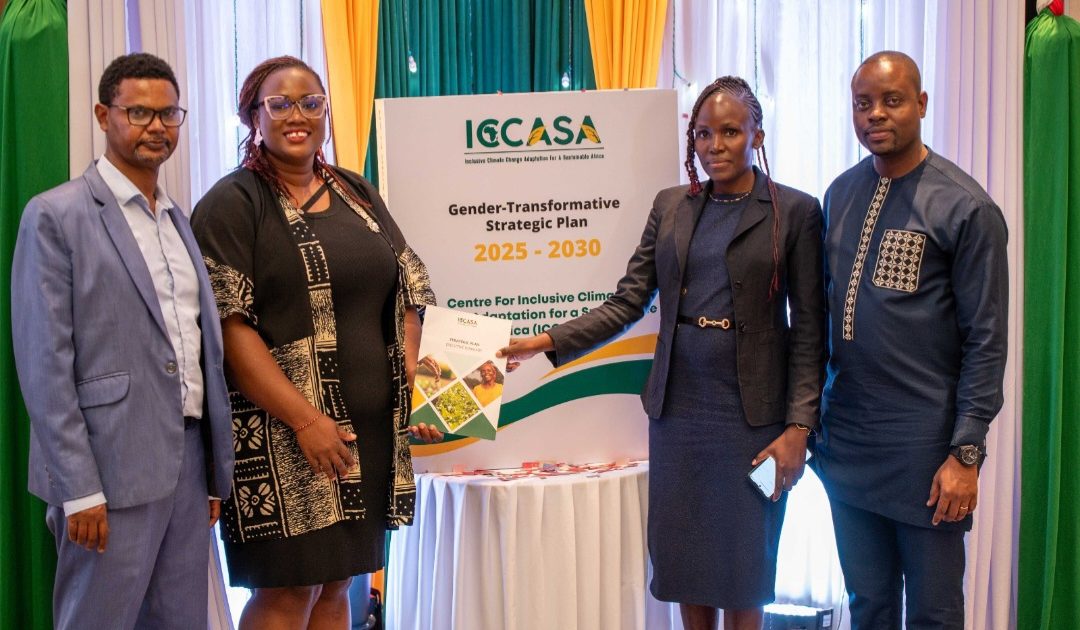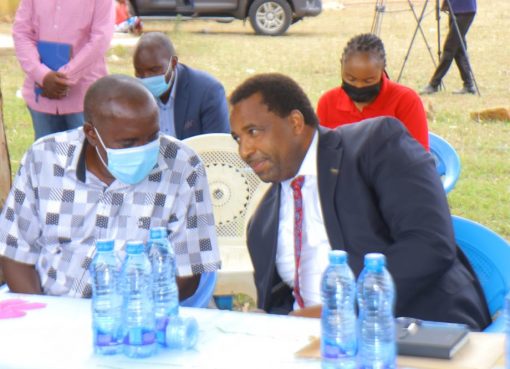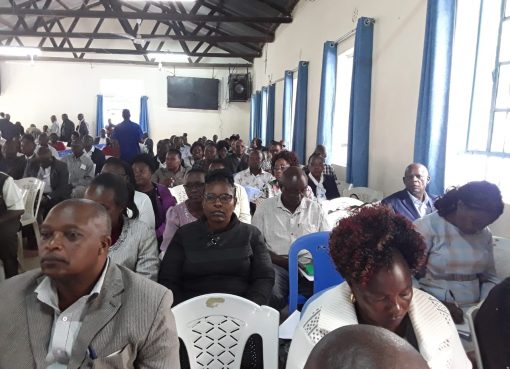The Center for Inclusive Climate Change Adaptation for a Sustainable Africa (ICCASA) has unveiled its gender transformative strategic plan 2025-2030, a bold initiative aimed at building an inclusive, gender transformative, and climate resilient Africa.
Speaking during the launch in Nairobi, ICCASA Communication and Advocacy Manager Faith Gikunda described the plan as a transformative roadmap for the next five years that aligns with ICCASA’s vision and mission committed to bridging gender gaps and fostering social inclusion in evidence-based climate change adaptation.
“This strategic plan marks a significant milestone in championing inclusive and gender-transformative climate action by building climate resilience in Kenya and Africa as a whole through gender-transformative and inclusive action and policy,” said Gikunda.
Gikunda said the plan emphasizes gender-transformative climate policies, capacity-building initiatives and inclusive strategies and actions to build resilience in a resolve to ensure that climate action reaches communities, acknowledging that climate change impacts us in profoundly different ways.
“We believe that women, youth, persons living with disabilities, rural agrarian-based population among other marginalized groups are key actors in driving the transformation needed for a climate resilient and equitable Africa” she said.
She divulged that climate change is one of the most critical challenges of our time, with severe consequences for vulnerable communities, particularly in Africa, and the need for gender-transformative and inclusive climate solutions is urgent.
“We are inspired by a vision where every voice matters, where every community is empowered and where our collective efforts forge a path towards lasting, transformative change,” she said, adding that marginalized groups, including women, youth and persons with disabilities, bear the greatest climate risks despite contributing the least to the crisis.
She said the strategic plan is not just a roadmap for the organization, but a call to action for all stakeholders dedicated to advancing gender equality, inclusivity and climate resilience.
She said the plan provides an opportunity for us to unite in ensuring that gender equity is embedded into climate policies, that vulnerable groups are empowered and that sustainable livelihoods are created for those most affected by climate change.
“We call on all stakeholders- government, civil society, development agencies, the private sector and communities to collaborate, adopt and implement policies and actions that priorities gender equality, social incidents, and climate justice,” she said
She said the strategic plan funded by the African Capacity Building Foundation (ACBF) is grounded on strengthening institutional capacity for equitable governance of climate action, expanding economic opportunities for marginalized groups, promoting gender mainstreaming in climate actions and policies and legal frameworks to reduce gender inequalities.
“The need for gender transformative and inclusive climate solutions is urgent, and immediate action is essential to ensure no one is left behind she said adding that by creating enabling environments where these groups can participate and lead in climate action, we will move closer to building a sustainable resilient country and Africa for all
Director Gender State Department for Gender and Affirmative Action in the Ministry of Public Service, Gender and Affirmative Action, Jackline Makokha, said ICCASA’s efforts in incorporating gender-transformative approaches into climate policies will significantly contribute to ensuring Kenya remains a leader in inclusive climate resilience and policy development.
“The strategic plan is a significant milestone not only in advancing gender equality within climate action but also in ensuring that these climate policies are inclusive, equitable and responsive to the needs of marginalised communities,” she said.
Makokha said the Ministry’s long-standing mandate is to promote gender equality and ensure that women and marginalized groups are adequately represented in national development processes, including those related to climate change.
She said climate change disproportionately affects women, particularly those in rural areas, and marginalized communities such as persons with disabilities and indigenous peoples.
“The impacts of climate change, such as drought, floods and food insecurity, tend to worsen existing gender inequality, under bring the need for gender-responsive climate policies,” she said.
The Director said the government advocates for the integration of gender considerations into climate decision-making, ensuring that the voices of vulnerable groups such as women, youth, and persons with disabilities are heard.
By Anita Omwenga





